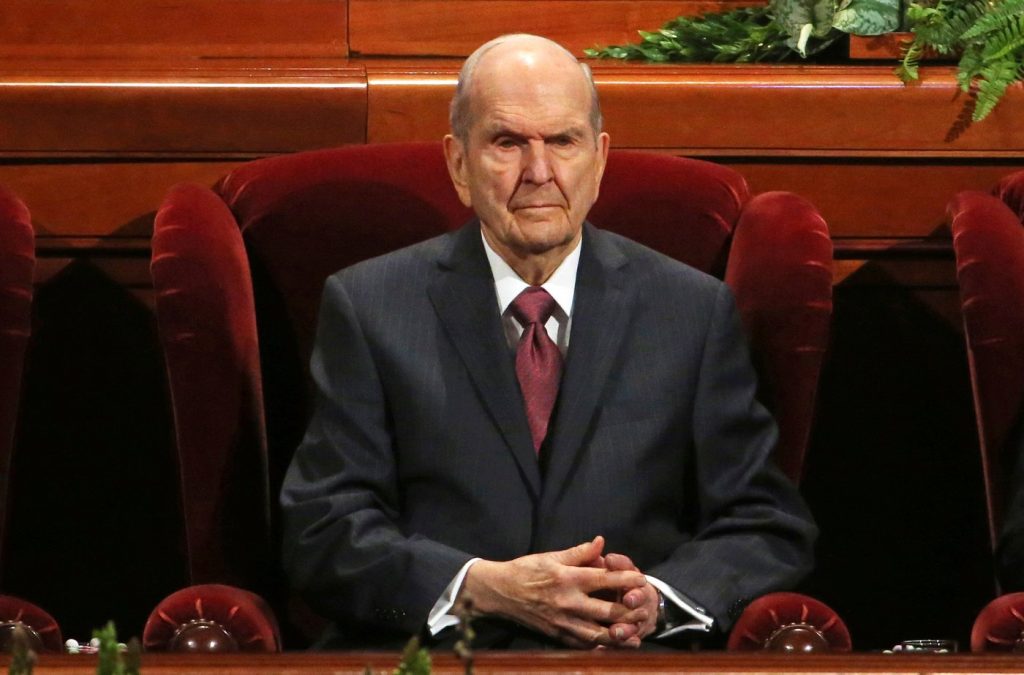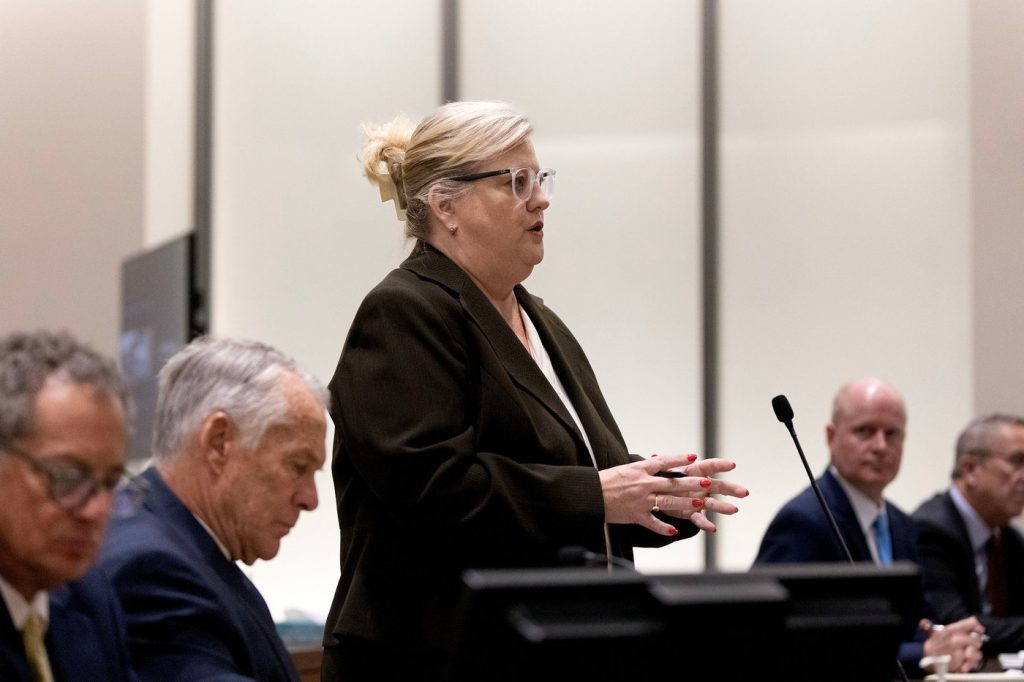SALT LAKE CITY (AP) - Russell M. Nelson, the oldest-ever president of The Church of Jesus Christ of Latter-day Saints, passed away on Saturday night at the age of 101, as confirmed by church officials. Nelson died at his residence in Salt Lake City.
A former heart surgeon, Nelson joined the Quorum of the Twelve Apostles, the church’s highest governing body, in 1984. He became president of the church in January 2018, following the death of Thomas S. Monson. Nelson notably became the first church president to reach the age of 100 in 2024.
The church has yet to announce his successor, but it is anticipated that Dallin H. Oaks, the next longest-tenured member of the Quorum of the Twelve Apostles, will assume the role according to church protocol.
Senator Mike Lee of Utah shared a heartfelt tribute on social media, describing Nelson as embodying faith, humility, and the quiet confidence characteristic of a devoted follower of Jesus Christ.
During his tenure, Nelson implemented significant changes within the church. In 2018, he made headlines by urging church members to stop using shorthand names like “Mormon” and “LDS” in favor of the full name of the religion—a marked shift from previous church leaders who had spent considerable resources promoting those monikers over several decades.
In 2019, Nelson took further steps by repealing prior policies that prohibited baptisms for children of same-sex parents and labeling same-sex couples as sinners eligible for expulsion. While his administration was viewed as more welcoming toward LGBTQ+ individuals, the church's stance on same-sex marriage remained unchanged, and additional restrictions were imposed on members pursuing gender-affirming procedures.
Nelson often described the church’s approach to LGBTQ+ members as a balance between “the love of the Lord and the law of the Lord.” As church presidents are regarded as prophets, they are believed to lead through divine revelation in cooperation with counselors and members of the Twelve Apostles.
Nelson was particularly noted for his leadership during the COVID-19 pandemic and for severing the church's long-standing ties with the Boy Scouts of America, subsequently establishing the church's own youth program that caters to its global membership of over 17 million, with many residing outside the U.S. and Canada. This disassociation followed the Boy Scouts of America's decision to include LGBTQ+ youth members and adult volunteers.
Throughout his presidency, the church faced increasing scrutiny regarding its handling of sexual abuse allegations. Investigative reports indicated that the church’s abuse reporting hotline could be misused to divert allegations from law enforcement to internal church attorneys, potentially endangering victims. Despite this criticism, Nelson and church officials maintained that the hotline was intended for child protection and not for cover-up purposes.
Nelson introduced changes to church guidelines to ensure reports of abuse are taken seriously and allowed children to have a parent or adult present during sensitive one-on-one interviews with local leaders. He also worked to diversify the church’s leadership by appointing non-American leaders to its top governing body and promoting regional hymnbooks that celebrate local cultures worldwide.
Additionally, Nelson shortened Sunday services and accelerated a push to build more temples globally, despite facing resistance in certain regions of the U.S. He fostered a formal partnership with the NAACP, acknowledging the church's complex past regarding race, including the historical ban on Black men serving in leadership roles until 1978.
Born in Salt Lake City in 1924, Nelson pursued a career in medicine from a young age, achieving his medical degree at 22. He served in the Army during the Korean War and later directed the thoracic surgery residency at the University of Utah. Known for his precision as a surgeon, Nelson emphasized legal obedience and adherence to the “covenant path,” a framework central to the faith. He had ten children with his first wife, Dantzel White, and after her death in 2005, married Wendy Watson in 2006.
Nelson's legacy includes both significant advancements within the church and ongoing conversations regarding its policies on members' rights and diversity.












